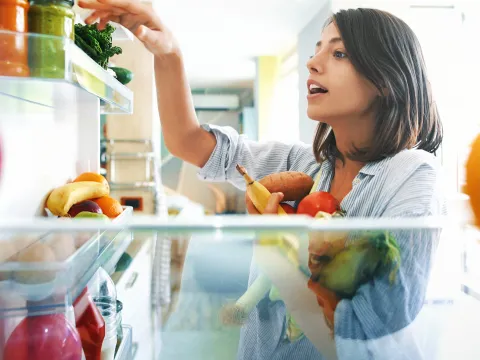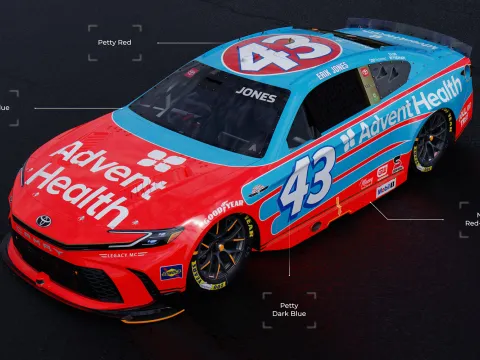Published date:
|
Last updated:
February 21, 2025 |
Estimated read time: |
Authored by:
- AdventHealth
Topics:

Choose the health content that's right for you, and get it delivered right in your inbox
If a hurricane makes landfall in your community, widespread power outages could be left in its wake. If you do lose power, food safety is an important consideration. We want to keep you and your family safe before, during and after a storm. So, we've created a few food safety tips to keep in mind as we brace for any potential impact this hurricane season.
- Keep your refrigerator closed. Your refrigerator is a giant cooler, and if you trap its cold air inside, the food in your fridge will stay cool for about four hours. Without power, your freezer keeps food cool even longer, for 24 hours or more.
- Buy dry or block ice. Once the roads are safe for driving, buy dry or block ice to place in your freezer. 25 pounds of dry ice should keep your stocked freezer (regular size freezer built into adjacent refrigerator) cold for two days. Double that amount of dry ice for a large, standalone freezer.
- Cook perishable food thoroughly before cooking and eating. Non-perishable food in your refrigerator that has been kept cool, below 40º F, is safe to cook and eat. Any food that has been above 40º F for 2 hours or more should be thrown away. Perishable food that was not adequately refrigerated can cause illness, even if it has been thoroughly cooked. When in doubt, throw it out!
- Determine what food must be thrown away. When the power comes back on, check the thermometer in your freezer. If it reads 40° F or below, the food inside is safe and can be kept and refrozen or placed in the refrigerator. If it is above 40° F, the food must be thrown away. If your freezer doesn’t have a thermometer in it, look closely at individual packages of food. If there are still ice crystals on the food, it should be safe.
- Focus on eating foods that are 100% safe. Canned beans and veggies, peanut butter and jelly sandwiches, bananas, and beef jerky are just some of the foods that don’t require refrigeration and are safe to eat when the power is out.
Food is expensive, and it’s hard to throw it away. But it’s much better to dispose of potentially unsafe food than for you and your family members to get sick. Be diligent in following the steps above as you assess the safety of your food. Stay safe and healthy, and continue checking in with AdventHealth for helpful tips to get you through hurricane season.
Recent Blogs
Item 1 of 5
Item 2 of 5
Item 3 of 5
Item 4 of 5
Item 5 of 5


